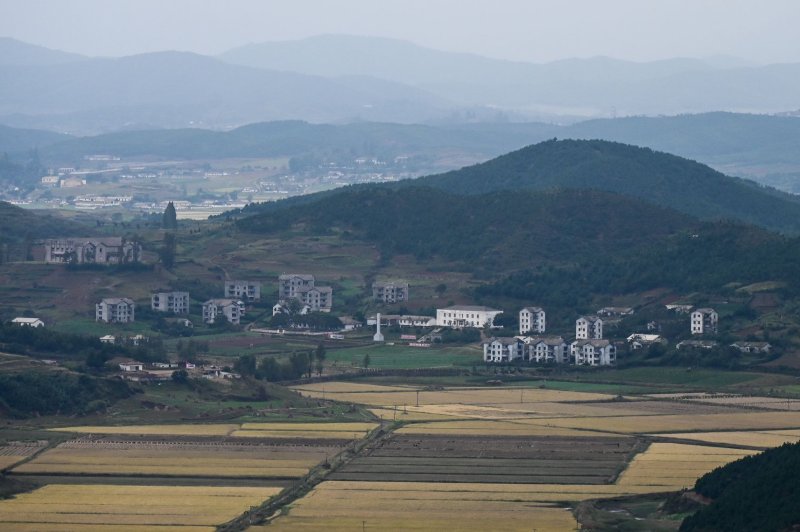1 of 5 | While all looks calm at a North Korean village that sits across the Han River estuary, a new report says the human rights situation in the North is bleak. File Photo by Thomas Maresca/UPI |
License Photo
SEOUL, Dec. 15 (UPI) -- North Korean leader Kim Jong Un has tried to conceal public executions from international attention, while brutally cracking down on smuggled South Korean media, a human rights group said Wednesday.
A report by Seoul-based Transitional Justice Working Group was based on interviews of nearly 700 defectors and satellite analysis to trace how the state killings have changed since Kim took power 10 years ago this Friday.
"Our findings suggest that the Kim Jong Un regime is paying more attention to human rights issues as a response to increased international scrutiny over the gravity of the situation in North Korea," said Ahyeong Park, the report's lead author.
Killing sites have been moved away from public markets and areas near the Chinese border, while crowds are tightly controlled in order to avoid leaks such as a 2005 video that shocked international audiences, the report said.
The frequency of large-scale public executions also has declined, according to recent defectors.
"That does not mean the human rights situation in North Korea is improving," Park said. "State-led killings continue to take place in ways that may not be as visible to the public as they did in the past."
Secret or "indoor" killings are on the rise, the report said, but it noted that North Korea still uses public executions to send a message, often forcing family members and others close to the victim to attend.
"Even when there was fluid leaking from the condemned person's brain, people were made to stand in line and look at the executed person in the face as a warning message," one interviewee said about a 2012 killing.
The report, Mapping Killings Under Kim Jong Un, documented 23 public executions and found that the most frequently cited crime was watching or distributing South Korean videos.
Hubert Younghwan Lee, executive director of the Transitional Justice Working Group, said that in the past, minor economic crimes such as stealing copper from machinery were more common reasons for the death penalty.
"But now the main concern is external media like South Korean dramas and movies," Lee told UPI. "It shows what Kim Jong Un is the most afraid of -- the influx of external information."
Pyongyang adopted an "anti-reactionary thought" law last December, which calls for punishments that range from hard labor to death for crimes such as importing videos or even singing in a South Korean style.
North Korea also has reacted harshly to defectors sending leaflets over the border via balloons, deciding to cut off communications with South Korea and blow up a shared liaison office in Kaesong in protest in June 2020.
A 2014 Commission of Inquiry by the United Nations documented crimes against humanity in North Korea, including torture, rape, forced labor and executions, saying its abuses were "without parallel in the contemporary world."















